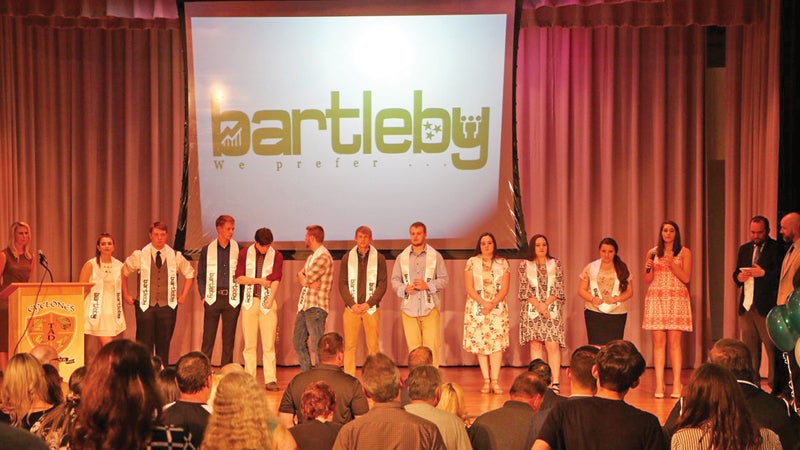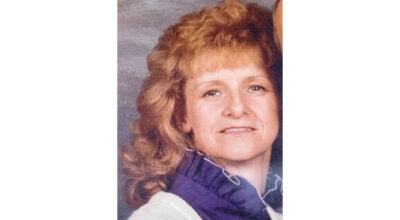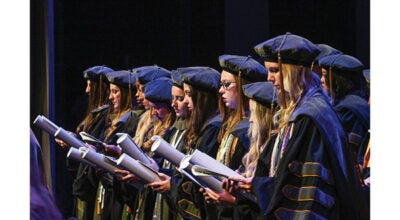Elizabethton’s Bartleby Program to present at Innovation Forum & Showcase, hosted by House Committee on Education and the Workforce
Published 4:23 pm Friday, July 13, 2018
Representatives from a rural Tennessee high school will present their student-centered, project-based, experiential learning model to the Innovation Forum & Showcase, hosted by the United States Committee on Education and the Workforce this month. Bartleby is a program within Elizabethton High School that was developed as a winning student proposal in the XQ Super School Project in 2016. Since then, the students’ plan has inspired school leaders, teachers, the Board of Education, and the community to rethink high school for the 21st century.
Director of Elizabethton City Schools Dr. Corey Gardenhour and Bartleby Director Terry Smith will share how Bartleby has transformed the school into an innovation incubator. It is an education model that is project-based, passion-driven, community-focused, and interdisciplinary. The program has grown so rapidly that it has already spread schoolwide, now reaching all 865 students at Elizabethton High School. Due to the program’s success, Bartleby is now spreading to the junior high school and elementary schools, making it a true districtwide initiative. In addition, Bartleby’s success has led to a Bartleby online program that beginning this school year will allow it to provide Bartleby online courses to students across the state of Tennessee.
“I’m very proud that Dr. Corey Gardenhour and Terry Smith will be able to share their innovation success story from East Tennessee,” said Congressman Phil Roe. “Their leadership and experience of running the Bartleby Program at Elizabethton High School speaks to the vision Elizabethton City Schools has for their students, and I believe it is a model that we should try to bring to other school districts around the country. I’m grateful to House Committee on Education and the Workforce Chairwoman Virginia Foxx for hosting the Innovation Forum and Showcase, which is a great way to highlight the innovative ways educators from all over America are positively creating change in their school systems.”
Bartleby’s vision for education is one that doesn’t break complex issues into one-subject courses and credit hours. It doesn’t measure understanding solely with test scores, but also with projects and tangible results. The goal is for students to master academic concepts in local and global contexts, so they can analyze complex problems and create solutions.
“We believe high school should be a place where students are empowered and encouraged to think critically about the world and the challenges we face. Every day we ask how we can prepare students for jobs that don’t yet exist, and we are looking to leading innovators, employers, and global education models to accomplish that,” said Gardenhour. “It’s an honor to showcase our progress with our nation’s leaders, and we hope Bartleby will be a catalyst for similar programs nationwide.”
The Bartleby model focuses on learning beyond the textbook and beyond the lecture hall. Students identify community needs and then apply classroom concepts to create real-world solutions. They work in the school and comunity with mentors, industry professionals, and college partners for expert advice, and they present their results in public forums.
A primary emphasis of the Bartleby program is the development of presentation and communication skills within the students, including public speaking skills, group discussion skills, and one-on-one conversational skills. All Bartleby courses have this communication emphasis built into their curricula.
Another primary emphasis of the Bartleby program is connecting the students with the outside world with more than 30 guest speakers each year who are political, business, university, and community leaders, and through taking the students out into the community on an almost daily basis to develop partnerships, mentors, and friendships.
The outstanding communication skills developed by Bartleby students allows them to elevate themselves in this area beyond students from other schools, and when these communication skills are combined with the network of people they have the opportunities to meet and spend time with, this results in Bartleby students building outstanding and mutually beneficial relationships with colleges, regional partners, and mentors that prepare them for success in life.
Two of Bartleby’s core courses are Community Improvement and Entrepreneurship. Students in these classes research local issues, and then work with their community partners to develop solutions and to launch new businesses. Other Bartleby courses include blended History and English courses and blended Science and Math courses; a freshman course in interpersonal development, leadership, goal-setting, and career exploration; senior capstone courses in each academic core subject, a college dual enrollment senior capstone course to prepare seniors for college and postgraduate careers; and 14 new passion-based Bartleby Enrichment courses.
To facilitate these new courses, a recent financial award has made possible the installation of a commons area auditorium presentation space, outdoor theater, makerspace, television studio, virtual reality lab, outdoor classroom, and a project-based learning collaboration area.
All teachers participate regularly in project-based learning training, conferences, and seminars, and a Director, Bartleby Coach, Bartleby Project Manager, and Partnership Manager support teacher training and student projects throughout the year.
“Most of what we have accomplished and what we will do next year are things that any public high school can do,” said Gardenhour. “We began by listening to students and comprehensively reviewing how our courses, school culture, and facilities are preparing students for the jobs of the future. We know students need to be able to go beyond rote memorization and have to be able to analyze and create. But we have to be willing to adjust our schedules, courses, and often our perspectives to make that happen.”





